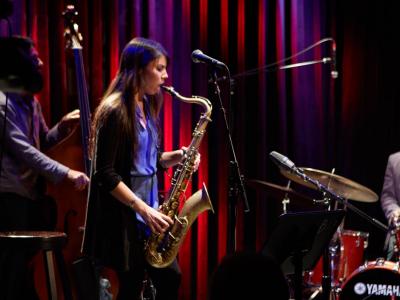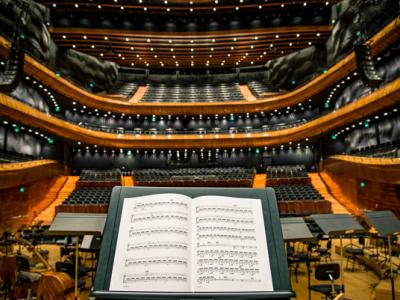What does an Orchestrator (Concert and Stage) do?
People outside the music industry often confuse orchestrators with arrangers, and for good reason: each picks up a piece of music where the composer left off. The key difference is that whereas the arranger's job is to reinvent an existing piece of music, the orchestrator's job is to develop, enhance, or complete it while adhering as closely as possible to the composer's creative vision. Depending on how much information the composer passes along, this could mean anything from assigning instrumentation and dynamics to writing entirely new chords and harmonies.
Orchestrators interact regularly with arrangers and composers and network like crazy in order to land the next gig, so the ability to communicate and get along well with others is vital.
Some composers create a detailed sketch, called a short score, that clearly indicates their instrument preferences as well as rhythmic and harmonic choices. In these circumstances, an orchestrator's task is to expand the sketch into a full orchestral score by determining the number of players in each section and the registers in which they play, and to balance these dynamics so as to achieve the composer's desired effect.
Other composers, however, provide only a written melody as a starting point, and in these situations the orchestrator takes on a more collaborative role: conceiving harmonies, chords, rhythms, and tempos for the composition, much like an arranger does, as well as assigning the instrument parts. This is especially common in the film and television industries, where a large number of specialized film and TV orchestrators make a living.
Orchestrators may also be asked to transpose a score for a different instrument, or change it from soprano to alto or bass to baritone to better suit a vocalist's range.
At a Glance
Many orchestrators begin as assistants before being hired as lead orchestrators. While film orchestration is a full-time career, concert and stage orchestrators are likely to also work and create as arrangers, copyists, proofreaders, conductors, composers, music directors, bandleaders, or orchestra musicians.
Successful orchestrators have the opportunity to take part in more prestigious projects, to form creative relationships with established composers, or even to find something resembling full-time employment—a rarity in this business—as the primary orchestrator for a television show, opera company, theater company, or symphony orchestra.
Concert and stage orchestrators are usually freelance, and can be hired by composers, producers, bandleaders, music directors, film and television studios, symphony orchestras, opera companies, and theater companies. Because most of the work is freelance and jobs are filled via word of mouth, networking and building an excellent résumé are two important parts of cultivating a career.
- Wide knowledge of instruments
- Deep knowledge of music theory and harmony
- Deep knowledge of music notation
- Sibelius (and other notation software)
- Sequencing software
- MIDI
- Music composition
- Written and verbal communication
- Teamwork
Orchestrators are likely to spend most of their workday alone at a desk, which leads some to describe the career as solitary. It's true that working alone in this way requires focus, discipline, and time management skills. However, it might surprise some to learn that teamwork, communication, and artistic rapport are three of the most important ingredients for success as an orchestrator.
When a composer works with an orchestrator, he or she needs to be able to trust that the orchestrator will listen closely to the composer's intentions, implement them effectively, and make intelligent artistic choices where the orchestrator is given creative freedom. For a "solitary" job, this role is all about understanding and working well with others.
Freelance orchestrators set their own schedules but must always answer to project deadlines, which are often pressing. Most work out of home offices or studios. A small number of orchestrators are employed by music production houses, in which case they may have a physical office space and official hours.







